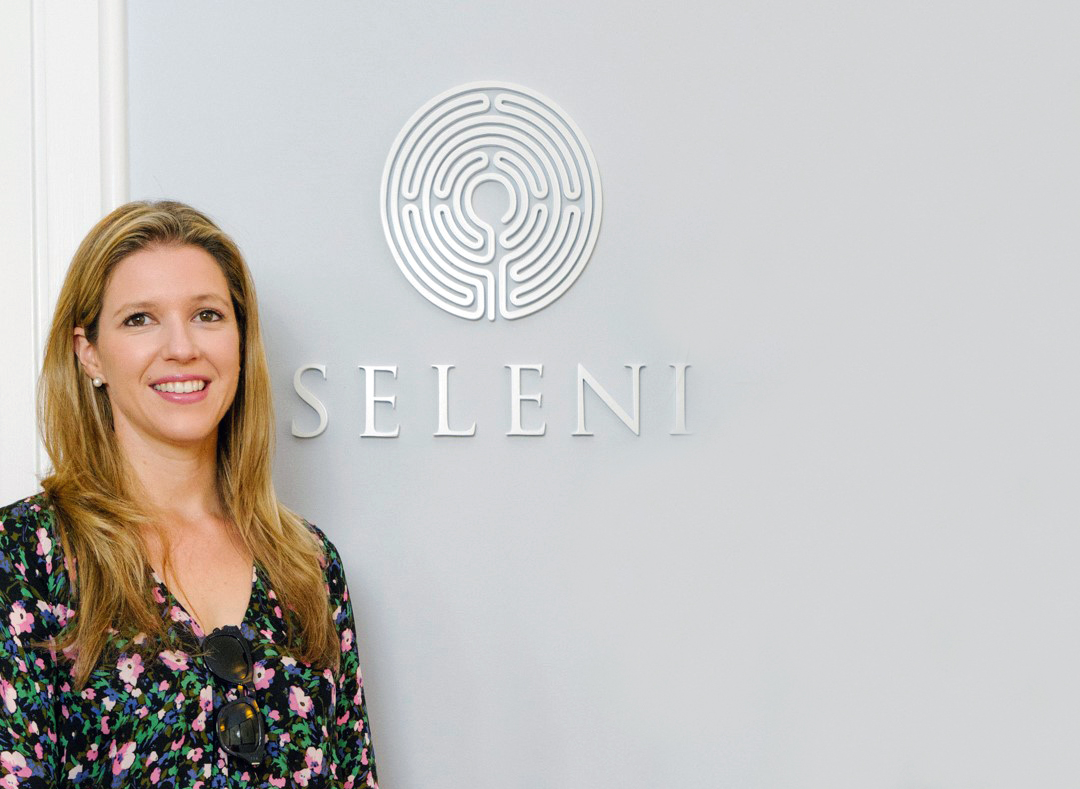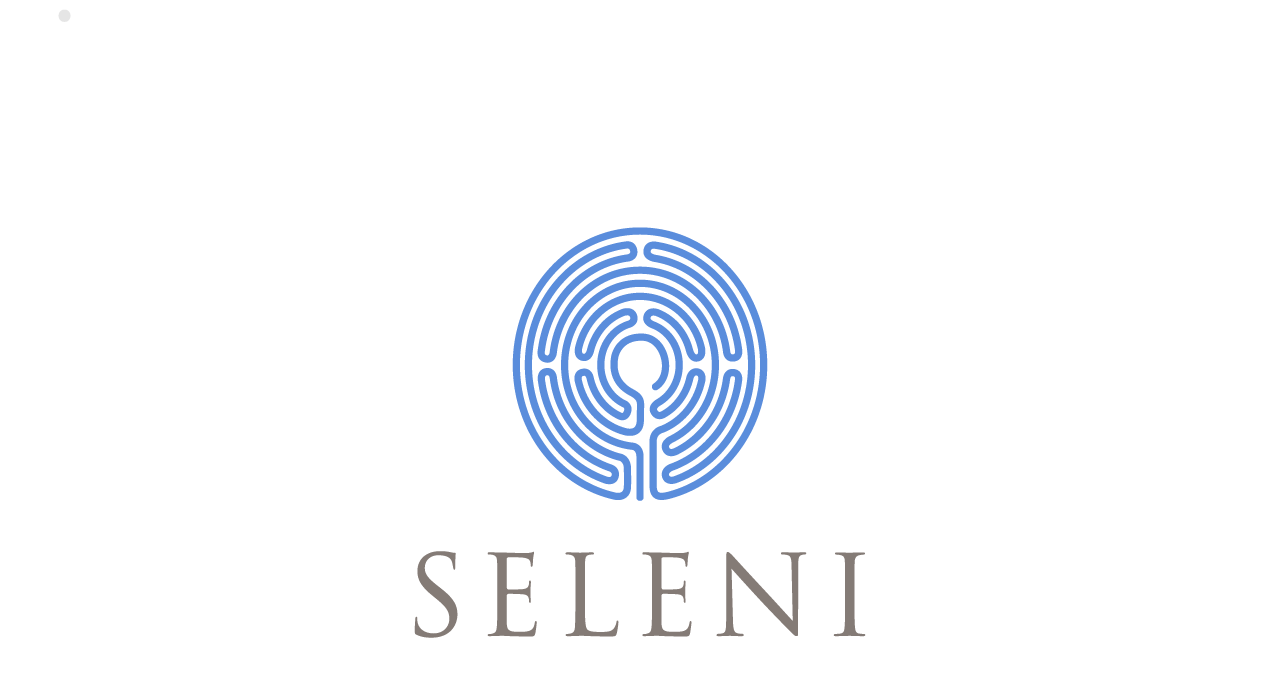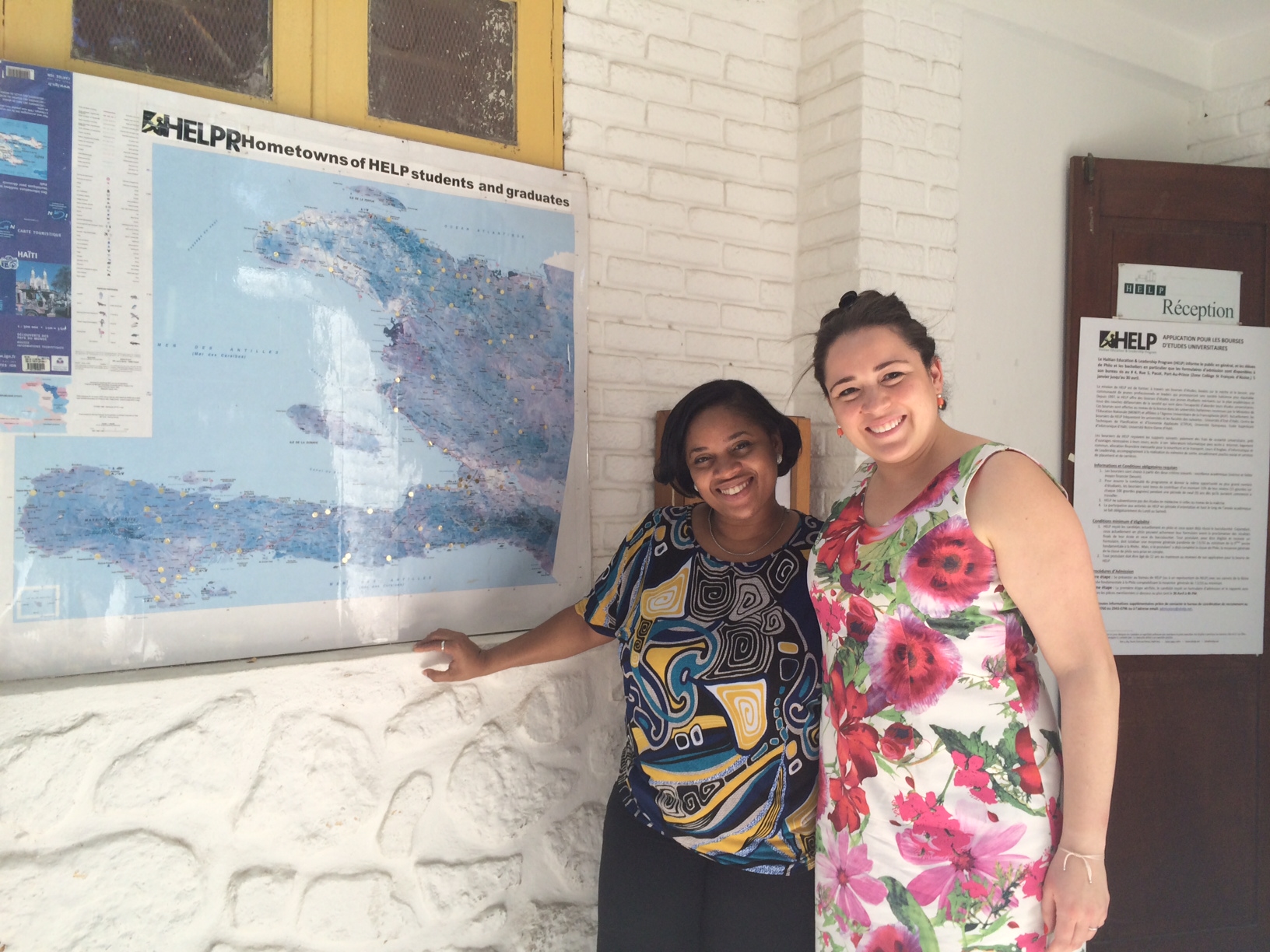Nitzia Logothetis interviewed by maternal fashion and lifestyle brand Teat & Cosset
Seleni Founder, Executive Director, and Psychotherapist Nitzia Logothetis has been interviewed by fashion and lifestyle brand Teat & Cosset and the two organizations begin a new partnership which sees T&C merchandise stocked at the clinic in Manhattan.

Nitzia Logothetis, MSc, MA, LMHC, is a licensed psychotherapist and the Founder and Executive Director of Seleni Institute, a non-profit organization dedicated to providing care, research, professional training, and information central to maternal and reproductive mental health. She talks with us about the surprising percentage of women that experience some form of the baby blues, and of the smaller percentage that go through more serious anxiety. She describes the symptoms to watch for and what a new mother’s options are in terms of therapy.
Her institute is the rare place that recognizes maternal mental health impacts not only a mom’s life but her baby’s as well. Logothetis has created a space for women who need post partum support and we applaud, support and admire her for it. Read her informative and insightful interview below:
What inspired you to work in maternal mental health and start Seleni?
The birth of my first child and my work as a psychotherapist initially inspired me to learn more about maternal mental health. I grew up in the UK where conditions for new mothers are generous. Paid maternity leave of up to a year and associated support from nurse visits at home post-partum and more affordable child-care options are all expected.
So when I moved to the US, I was particularly curious about how women cope with minimal parental leave and high childcare costs here. I was surprised to learn while I was pregnant that companies with fewer than 50 employees in the US did not have to guarantee a woman’s position post-partum and were not required by law to provide 12 weeks of unpaid leave from the workplace under the Family Medical Leave Act (1993).
This made me question how new mothers coped post-partum under normal circumstances, let alone when tragedies occur such as a stillbirth or the development of a Perinatal Mood or Anxiety Disorder.
In addition, much of my work prior to the birth of my son had focused on child development with incontrovertible evidence that children thrive in relation to their mothers’ emotional health. I questioned how a country that led in the realm of child development research and parenting had an absence of laws to support these very mothers who form the bedrock of society’s future generations. In all my clinical work, my patients whose mothers were emotionally healthier and had been more available to them were the ones who became more resilient adults.
Conversely, those patients whose mothers struggled with mental illness needed longer-term therapy and suffered from more acute psychological crises and psychiatric diagnoses. They experienced more difficulty tolerating normative stress and struggled with their relationships more than their peers. These clinical observations combined with my own experience of motherhood led me to start Seleni, a non-profit for maternal and reproductive mental health.
What percentage of new mothers experience mental health disorders?
Up to 85% of new mothers experience perinatal emotional distress (more commonly known as the “baby blues”) and one in every five women experiences a Perinatal Mood or Anxiety Disorder including Obsessive Compulsive Disorder (OCD), and very rarely Post-Partum psychosis. The latter affects approximately one in every 1000 to 2000 women and represents an acute psychiatric crisis that needs urgent medical attention.
How can treating a mother’s perinatal disorder improve the health of her baby?
The old adage “happy mom, happy baby” is backed by numerous research studies. Women who struggle with depression or anxiety post-partum tend to experience disruptions in attuning to their infant babies. Evidence shows that depressed mothers are less likely to read, sing or play games with their children. These mothers tend to disengage and touch their children less frequently than mothers whom are not struggling with a Perinatal Mood or Anxiety Disorder.
Also, some mothers may be more intrusive, and even harsh, towards their babies than emotionally healthy mothers. More alarming still is how research confirms that women struggling with depression are less likely to enforce safety practices such as implementing child proof latches and buckling their children into their car seats. The long-term effects of having an untreated mother include cognitive delays, behavioral problems and higher lifetime rates for depression and anxiety and other psychiatric disorders.
The most effective way to improve a child’s physical and emotional well-being and their long-term resilience is to treat first a mother struggling with mental illness.
Many women experience post partum fatigue and blues at some point past birth. How should a woman know if she should go see a professional?
Feeling overwhelmed following the birth of a child is not uncommon, especially in the first two weeks. Up to 85% of women experience some form of baby blues or normative anxiety. It is when these feelings persist and are accompanied by a sense of panic or feeling more enraged than usual: changes in appetite, feeling depressed or anxious and even the presence of scary thoughts. Excessive worry over something happening to the baby or a fear of harming them intentionally might indicate a Perinatal Mood or Anxiety Disorder; that’s when help is needed.
What are the most common issues you see women have post-baby?
The most common symptoms post-partum range from symptoms of anxiety to depression. Some women have difficulty sleeping, others have significant changes in appetite and concentration while others might have significant flashbacks to a traumatic birth. All these factors can reinforce one another.
For example, a mother struggling with anxiety might have greater difficulty sleeping despite her baby being able to sleep for longer stretches. In turn, this can affect her concentration, leading to poor self-esteem and the feeling that she will never be a good enough parent for her baby.
Such conditions can see a mother turn to alcohol or drugs to reduce her symptoms of depression or anxiety, and this can interfere even further with her sleep and bring about a negative vicious cycle. These symptoms can interfere so greatly with her functioning that a mother might develop a fantasy that her child would be better off without her and lead to tremendous feelings of shame that stop her from getting the help she so deserves.
Does breastfeeding affect maternal mental health?
For many women, most difficulties post-partum begin with the expectations around breastfeeding. While there is less research on the subject, many women feel burdened by the “breast is best” maxim as some sort of ideal. Therefore an inability to breastfeed due to lack of milk or issues with latching can crush a new mother’s self-esteem.
A study from Cambridge University in 2014 found that overall women who breastfed their babies were more likely to have lower levels of cortisol and healthier emotional outcomes than those who did not breastfeed. However, for women who planned to breastfeed and were unable to, the risk of developing a Post-natal Mood or Anxiety Disorder increased two-fold.
There are even fewer studies on the impact of weaning, and Louann Brizendine, author of The Female Brain, has likened weaning to coming off heroine due to a dramatic reduction in oxytocin in the brain. Weaning can produce significant symptoms of anxiety in women who describe an otherwise uneventful post-partum period.
Overall, the decision to breastfeed or not is highly polarizing and as such at Seleni we support women in understanding themselves, their baby, and what is best for their family. We strive to help women come to terms with the best decision and sometimes that means prioritizing a mother’s mental health over the societal expectations to breastfeed.
What factors do you think increase the risk of or contribute to maternal mental health issues today? Is it mostly environmental or does biology also play a significant role?
There are several known risk factors that contribute to maternal depression and anxiety such as birth trauma, poverty, a history of physical, emotional or sexual abuse, a death in the family, social isolation, a high responsibility load and any family history of mental health issues.
Can an expectant/new mom do anything to try to minimise experiencing anxiety or depression?
While an expectant mother cannot predict the kind of birth, baby or post-partum journey she will have, we encourage women to read as much as possible on Mood and Anxiety Disorders and their associated risk factors. If a mother can recognize that she is at risk during her pregnancy, she has a much better chance of seeking or lining up support post-partum. We encourage expectant and new mothers to talk to their doctors and pediatricians about how they are feeling and to have the courage to seek the help they both need and deserve.
What are the most common and most effective treatments you use at Seleni?
For many women who come to Seleni, psychotherapy and things like a new mom’s group are sufficient to support her in her post-partum recovery. There are some cases where medication in conjunction with psychotherapy are necessary to return a new mother to her previous level of functioning. We strive to tailor support to each individual mother; for some, this can mean twice-weekly psychotherapy while in crisis along with psychotropic medications, while for others weekly psychotherapy is enough.
The health care system focuses on the physical wellbeing of mother & baby during pregnancy, birth & afterwards. How do you think we can increase awareness/importance of a mother’s mental health?
Despite all the research, there are still huge gaps in knowledge for many professionals who come into contact with expectant and post-partum women. All too often, well-meaning professionals miss the very obvious symptoms of Perinatal Mood and Anxiety Disorders.
The onus is on the patient to seek support and that’s ironic because poor mental health inherently means a lack of clarity, difficulty concentrating, and difficulties with planning. Knowledge is the key for patients and professionals alike. This is why at Seleni we have created trainings to equip professionals from psychologists to pediatricians and nurse practitioners to recognize when their patients are struggling and how to support them.
Seleni is one of the few organizations worldwide that specializes in training professionals to recognize and treat Perinatal Mood and Anxiety Disorders. We provide trainings on-line and in person that include screening and treatment of Perinatal Mental Health and in-depth instruction on perinatal loss.


 The Seleni Institute to hold maternal mental health training day in Athens
The Seleni Institute to hold maternal mental health training day in Athens  The City of Athens and The HOME Project signed a Memorandum of Understanding for the benefit of unaccompanied refugee children
The City of Athens and The HOME Project signed a Memorandum of Understanding for the benefit of unaccompanied refugee children  INSIGHT: “Libra Group Internships: celebrating five years of international opportunities”
INSIGHT: “Libra Group Internships: celebrating five years of international opportunities”